Building your case in
Slip, Trip & Fall Accidents
Here to Help You After an Accident
Slip, trip, and fall accidents can occur when you least expect them, often leaving victims with serious injuries and mounting medical expenses. Whether on a wet floor, uneven sidewalk, or poorly lit staircase, these accidents can be both physically and financially devastating. At the Law Offices of Paul Bryan Schneider, P.C., we’re here to help you understand your rights and pursue the compensation you deserve.
We Handle It All
Slip Trip & Fall Legal Support
New York City property owners are responsible for maintaining the sidewalks adjacent to their properties, yet broken pavement, large cracks, or unexpected height differences often go unrepaired. Pedestrians who trip on these hazards can sustain serious injuries, from sprained ankles to traumatic brain injuries. Our team will investigate the history of the sidewalk’s maintenance and determine if negligence played a role.
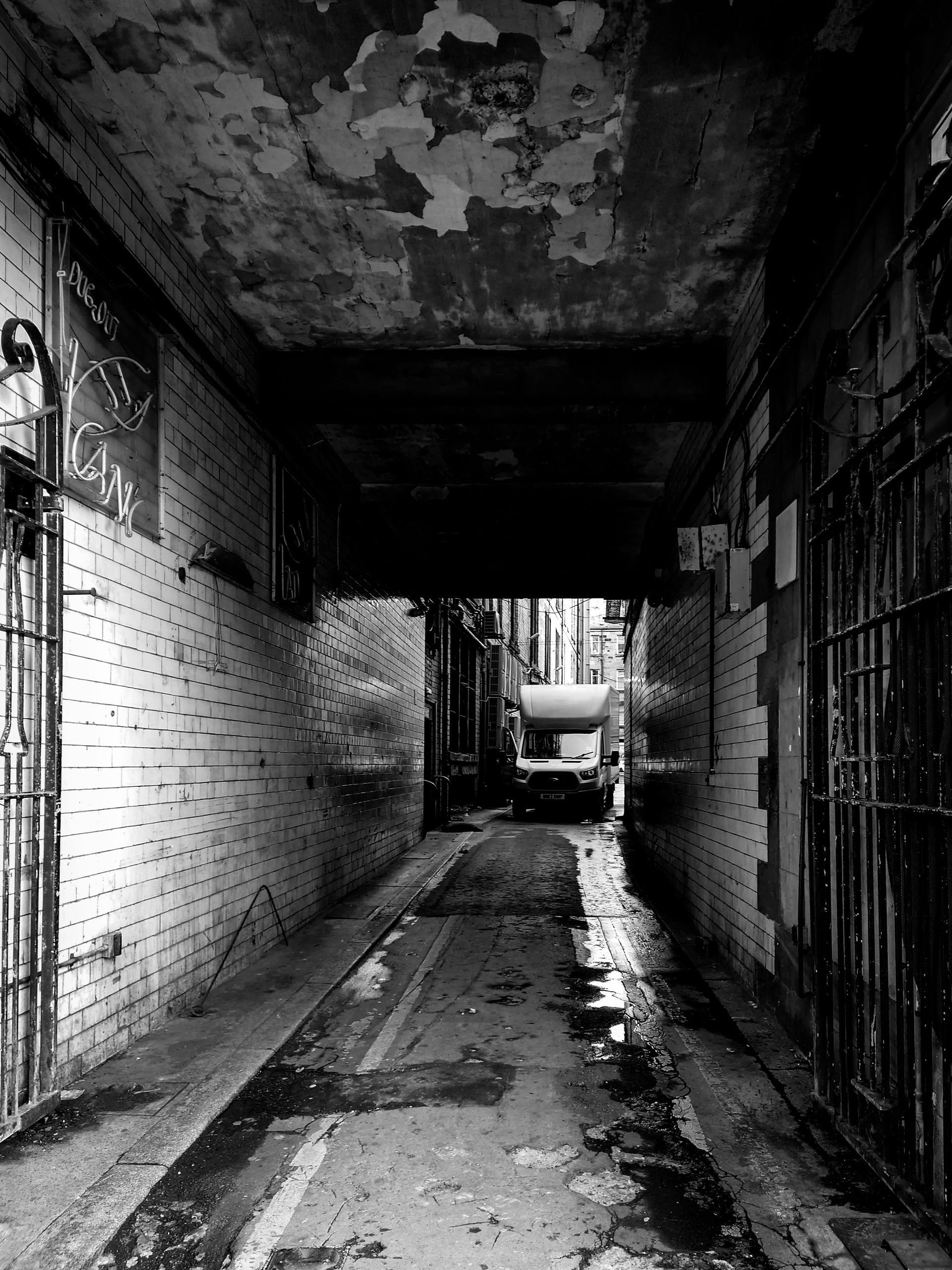
Uneven or Broken Sidewalks
Another significant hazard is wet or slippery floors, commonly found in grocery stores, restaurants, and public buildings. A simple spill or a recently mopped floor can create a dangerous situation, especially if no warning signs are present to alert pedestrians. These conditions are entirely preventable, and we ensure that businesses are held accountable for failing to protect their patrons.
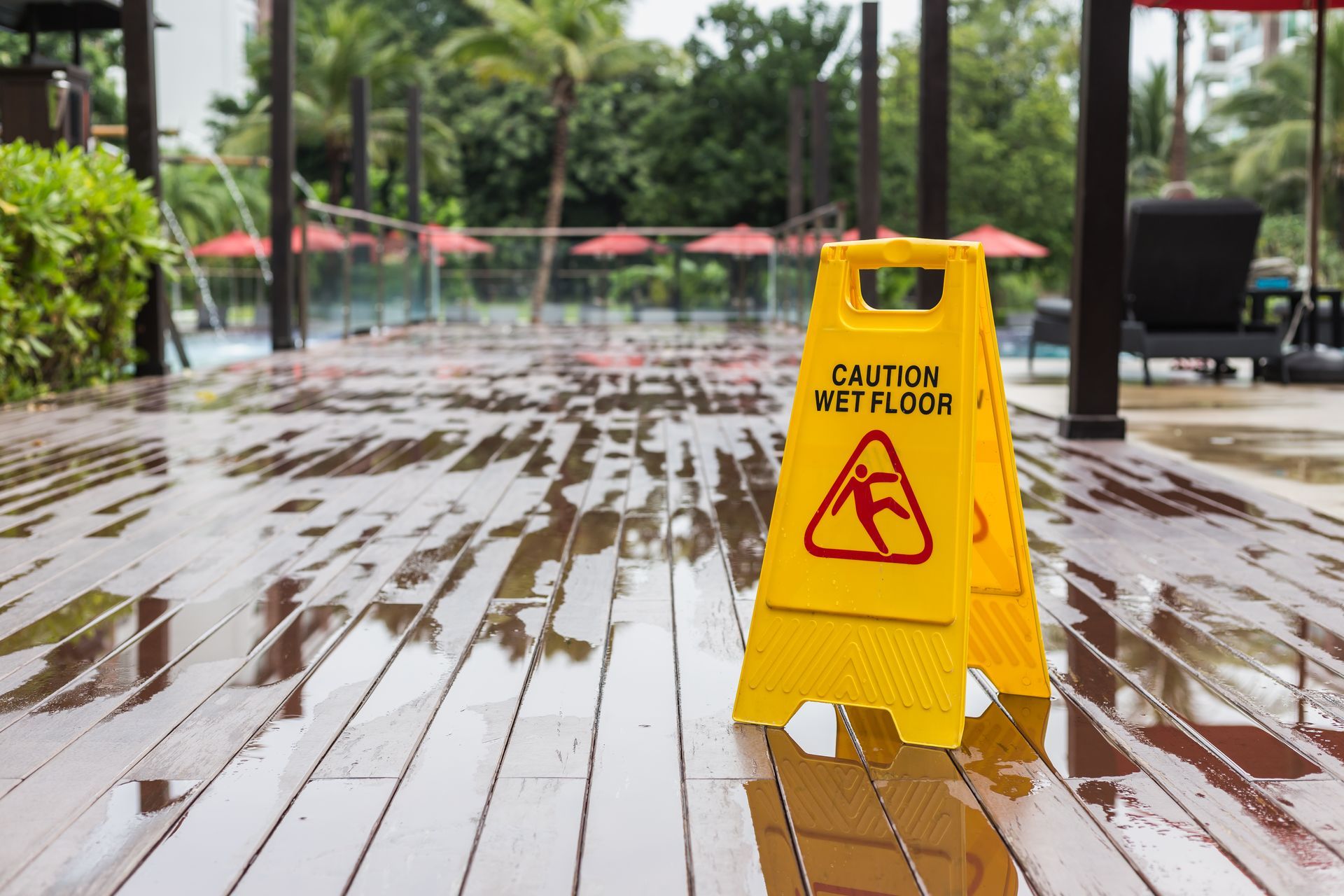
Wet or Slippery Floors
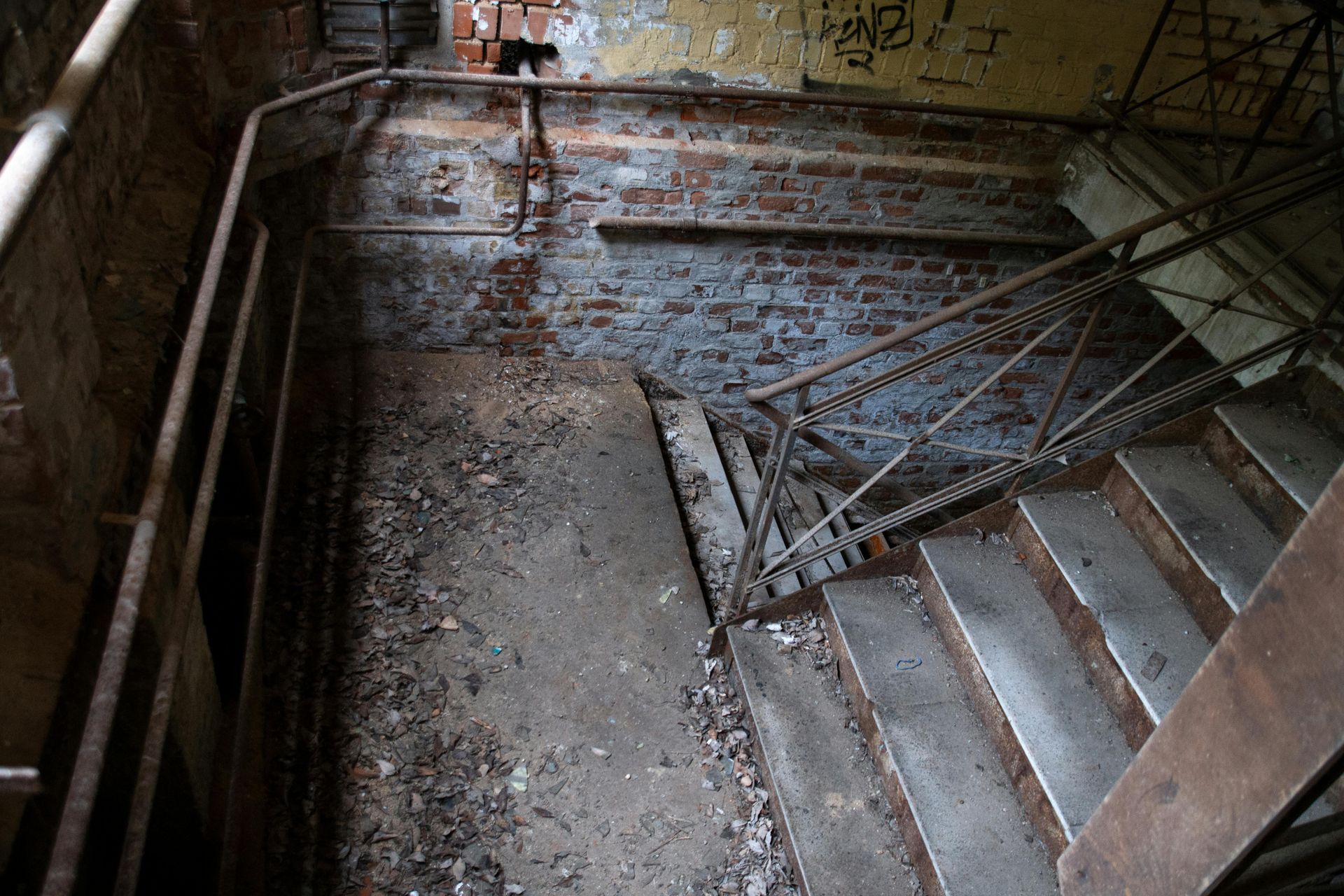
Improperly Maintained Staircases
Similarly, improperly maintained staircases, such as those with broken steps, missing handrails, or poor lighting, can turn a routine climb or descent into a serious fall with lasting consequences. These conditions are entirely preventable, and we ensure that businesses are held accountable for failing to protect their patrons.
Snow and ice accumulation during New York’s harsh winters is another common factor in slip-and-fall accidents. While snow and ice are unavoidable, property owners and managers are legally required to clear walkways within a reasonable timeframe. We gather evidence such as weather reports, timestamps, and witness statements to establish negligence in these cases.
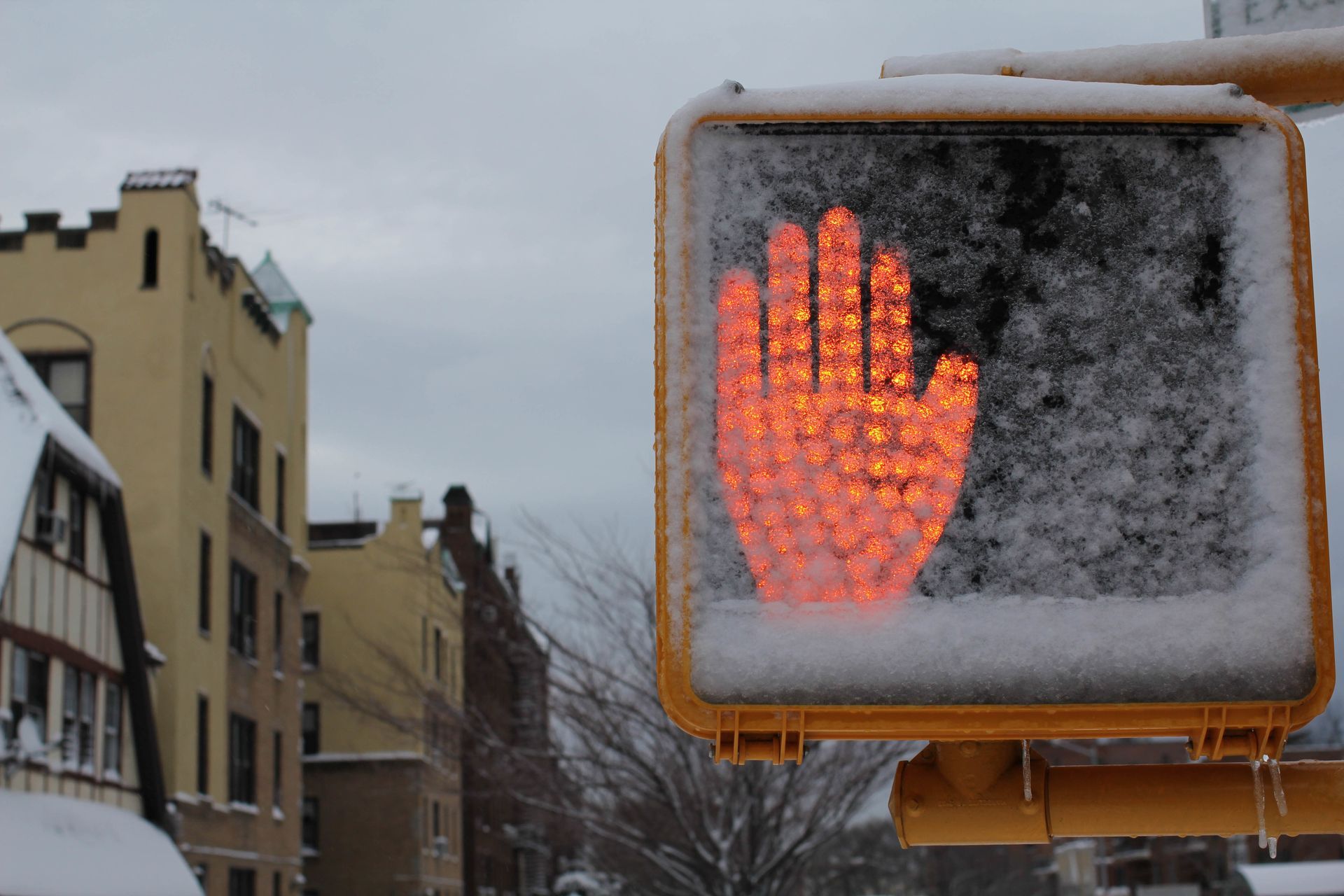
Snow and Ice Accumulation
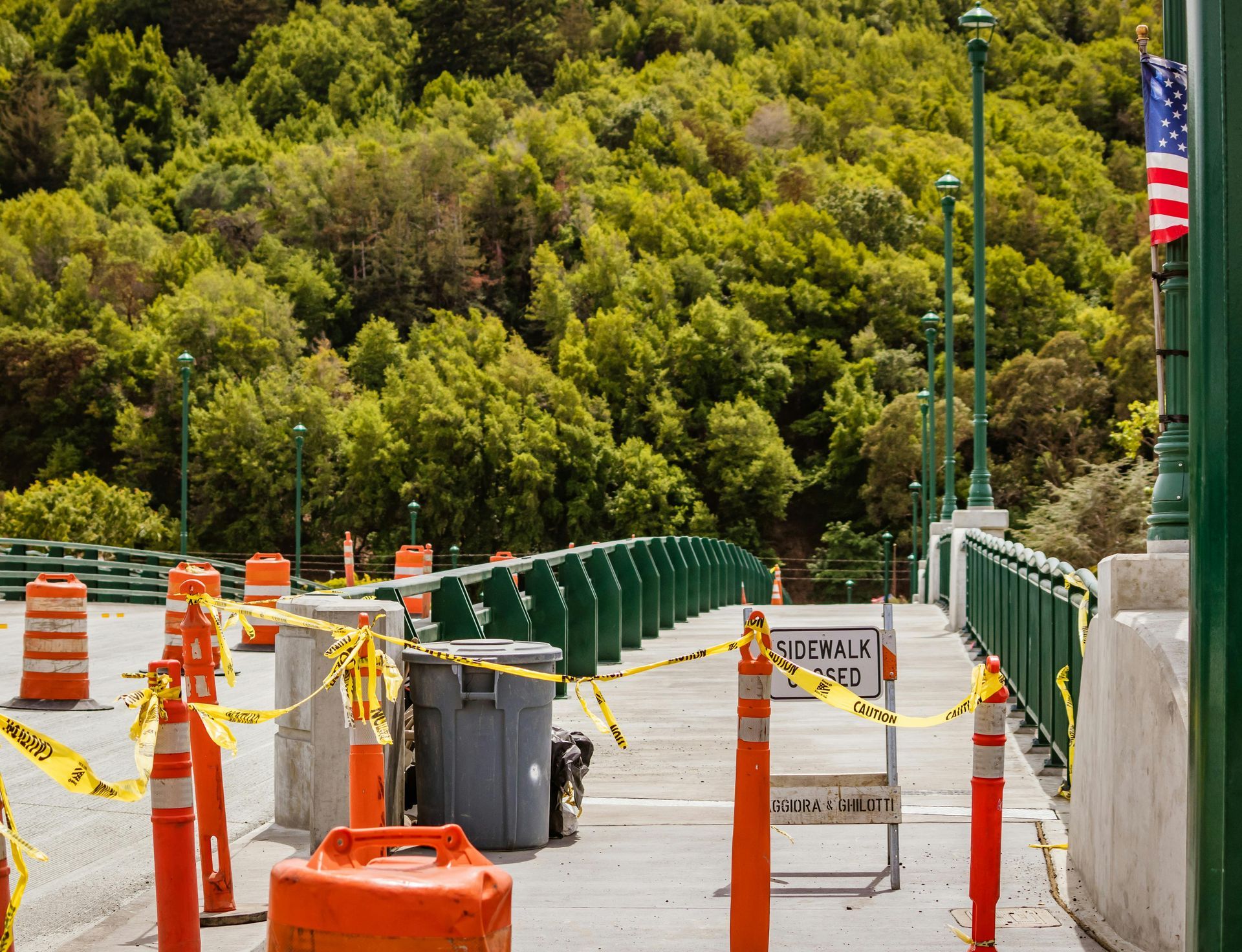
Obstructed Walkways
Finally, obstructed walkways and unsecured floor coverings frequently contribute to trip-and-fall accidents. Loose rugs, poorly placed extension cords, or debris left in high-traffic areas can cause serious injuries in homes, businesses, or public spaces. Such hazards are often overlooked until an injury occurs.
contact us today
Reach Out For a Free Consultation with Our Dedicated Team
We’re here to listen, guide, and fight for your rights—let’s start the conversation and explore how we can best support your case.
What should I do immediately after a slip, trip, or fall accident?
In New York, the statute of limitations to file a personal injury claim after an accident is generally three years from the date of the accident. Document the scene with photos of the hazardous condition and any visible injuries. Report the incident to the property owner or manager and seek medical attention promptly.
Who can be held liable for a slip, trip, or fall accident?
Property owners, managers, or tenants may be held responsible if their negligence created or failed to remedy unsafe conditions on their premises.
What compensation can I seek after a slip, trip, or fall accident?
You may be eligible for compensation for medical bills, lost income, pain and suffering, and other damages related to your accident.
How does New York’s comparative negligence law affect my claim?
The statute of limitations for personal injury cases in New York is typically three years from the date of the accident. Consulting with an attorney early is crucial.
However, any award you receive will be reduced by your percentage of fault. For example, if you are found 20% responsible for the accident, your compensation will be reduced by 20%. This law allows the injured party to seek compensation even in complex cases where fault isn’t entirely clear, and we work to minimize your degree of fault to maximize your recovery.
How can an attorney help with my case?
An attorney will gather evidence, interview witnesses, and negotiate with insurance companies to secure fair compensation. If necessary, they will represent you in court to protect your rights.

